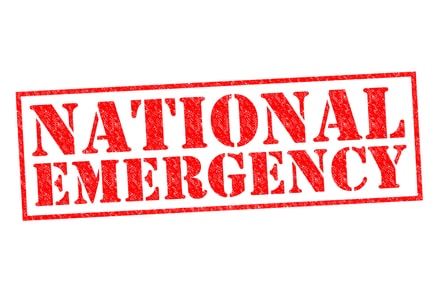America’s dependence on opioid narcotics has reached untenable heights. Americans make up only a small fraction of the world population. But, we use the vast majority of the global opioid supply. Whether it be prescription opioids or the ever increasing rates of heroin use, desperate action is needed. Unfortunately, the complexities of addiction have made it difficult to curb the epidemic. As we mentioned six weeks ago, the crisis we face began with prescription opioids. But, it will most certainly end with heroin and other synthetic opioids—like fentanyl. A drug that is 100 times more potent than morphine.
Over the years, several efforts have been made to curtail prescription opioid misuse. The establishment of prescription drug monitoring programs (PDMP), stricter prescribing rules and the closing of “pill mills” are a few examples. While such actions had the intended effect of curtailing prescribing and painkiller abuse, they failed to address the most salient factor. Addiction itself. Getting one’s hands on narcotics could be likened to that of the mythical hydra. You can cut off one head (painkillers) only to face another (heroin or fentanyl). When slaying the beast that is opioid addiction in America, expanding access to addiction treatment is the best weapon.
To be clear, making it more difficult to acquire painkillers illicitly and limiting the number of refills a patient can have is important. But, if a patient’s OxyContin addiction goes untreated, seeking heroin is the logical next step. A significant percentage of today’s heroin users developed their addiction via prescription opioid use.
Opioid Addiction: A National Emergency
When discussing the opioid epidemic it can be easy to digress into finger pointing. However, placing blame does little good at the end of the day. Right now, the best course of action is developing methods and strategies for reining in the crisis. A crisis that now claims roughly 142 lives every day by way of overdose. Last year, the Comprehensive Addiction and Recovery Act (CARA) was signed into law. CARA received bipartisan support, with the intent of expanding access to addiction treatment services and the overdose antidote naloxone. Additionally, expanding disposal sites for unwanted prescription medications, as well as providing prevention and educational efforts.
This year, the White House created a Commission on Combating Drug Addiction and the Opioid Crisis. Headed by New Jersey Governor Chris Christie, the commission has finally unveiled a report, according to The Washington Post. Which hopefully will have an impact. The commission has asked the President to “declare a national emergency under either the Public Health Service Act or the Stafford Act.” Thereby, forcing:
“Congress to focus on funding” and to “awaken every American to this simple fact: if this scourge has not found you or your family yet, without bold action by everyone, it soon will.”
Many of the recommendations found in the report are what addiction experts have been requesting for years, according to the article. Including, but not limited to:
- Expanding capacity for drug treatment under Medicaid.
- Placing greater emphasis on developing non-opioid pain relievers.
- Requiring that every first responder carry naloxone.
- Increasing access to buprenorphine drugs (i.e.Suboxone or Subutex).
“The interim report is mostly appropriately focused around dealing with the opioid crisis as the health issue that it is,” said Grant W. Smith of the Drug Policy Alliance.
Utilizing Addiction Treatment
The recommendations found in the report could be beneficial, and should be heeded. The time for action is now. It is worth mentioning something else before we sign off. A number of people currently caught in the grips of addiction do not believe recovery to be possible. They have tried to quit on their own, and were not successful. Some are turned off by what they “think” they know about programs of recovery. When the truth of the matter is contrary to their beliefs.
Addiction recovery is possible. Help is out there if one chooses to reach for it. When it comes to opioids, the risk of overdose is so high that spurning treatment can be deadly. If you are actively trapped in the cycle of opioid addiction, please contact Guardian Recovery Network. We have helped a significant number of people who were once in your shoes. A life in recovery is possible, and we can help.

Reviewed for accuracy by:
Anna Marie Barrett LCSW, CYT
Anna earned her Masters of Social Work at Barry University in Miami, FL in 2017 and completed her internship in co-occurring disorders. Anna has a Bachelors of Art in Religious Studies from Naropa University and is a certified yoga and meditation instructor. Anna has received specialized training in somatic counseling with an emphasis on body-centered psychotherapy.




















